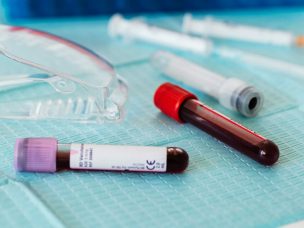AAD 2023
Association of Alopecia-Related Emotional Symptoms With Daily Activity and Work Productivity
Alopecia areata patients reported significantly increased daily activity impairment and work productivity loss, which correlated to worsening emotional symptoms. Individuals suffering from alopecia areata (AA) tend to experience significant psychological and emotional distress that affects their work productivity and quality of life. This study demonstrated that emotional symptoms related to AA correlate with increased activity...
Oxidative Stress, Biomarkers, and Potential Therapeutic Approaches in Alopecia Areata
Oxidative stress and associated biomarkers are potentially implicated in the pathogenesis of alopecia areata. Novel therapeutic approaches may target these mechanisms for the efficient treatment of alopecia areata. Alopecia areata (AA) can be referred to as a form of non-scarring hair loss. Oxidative stress (OS) plays a potential role in an imbalanced redox state in...
Efficacy and Safety of Janus Kinase Inhibitors in Alopecia Areata
A recent meta-review determined that Janus kinase inhibitors, including baricitinib and deuruxolitinib, may be effective for treating alopecia areata, with treatment response being determined by dosage. Cytokines implicated in the pathogenesis of alopecia areata (AA) function via activating Janus kinase signaling pathways, which induces phosphorylation of signal transducer molecules and activates transcription (STAT) molecules. The...
Interleukin 1α and Interleukin 18 in Patients With Vitiligo
This study found no association between interleukins IL-18 and IL-1α in the blood sera of patients suffering from vitiligo. Vitiligo is described as a depigmenting disease of the skin which is marked by the occurrence of white cutaneous spots that are often symmetrical and increase with time. In patients diagnosed with vitiligo, there is no...
Koebner Phenomenon in Vitiligo and Atopic Dermatitis in Young Girls
There is a potential risk of the development of vitiligo in pediatric atopic dermatitis patients owing to the Koebner phenomenon. Vitiligo is a skin disorder associated with the loss of melanin from normal skin regions. An abnormal inflammatory response in this disorder indicates a potential association between vitiligo and atopic dermatitis (AD). Pediatric AD may...
Affective Temperament Profile in Patients with Vitiligo
Vitiligo patients exhibit a distinct temperament profile and tend to be less resilient toward psychological stressors. Vitiligo is a skin disorder associated with psychiatric comorbidities, including suicidality, low self-esteem, and depression. Vitiligo patients have a characteristic premorbid temperament profile associated with affective traits, including high anxiety and low hyperthymic temperament traits. The findings of this...
Thyroid Autoimmunity in Vitiligo
Individuals diagnosed with vitiligo have significantly greater levels of anti-thyroid peroxidase and anti-thyroglobulin antibodies, which are the markers of autoimmune thyroid diseases. Vitiligo is an acquired skin disorder characterized by progressive melanocyte loss. Vitiligo is associated with autoimmune disorders, the most prevalent being autoimmune conditions of the thyroid. Vitiligo patients have significantly higher levels of...
Natural Compounds in Vitiligo and Mental Health
Natural compounds, including antioxidants, contribute to the improvement of both vitiligo and associated mental health disorders, leading to a limited need for therapies and a better quality of life. Vitiligo is described as an autoimmune dermatosis and is often associated with mental health disorders. However, the cause–effect relationship between the two is yet to be...
More Medical News













